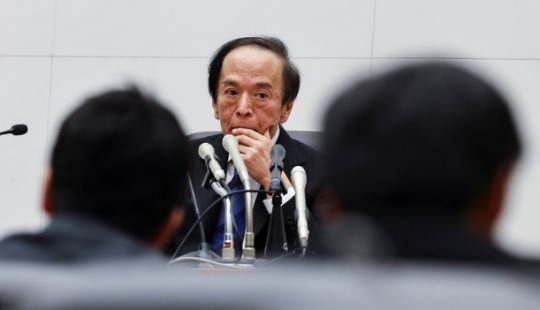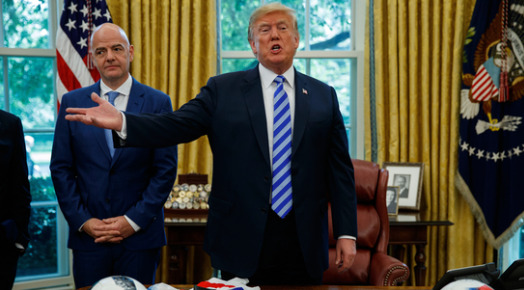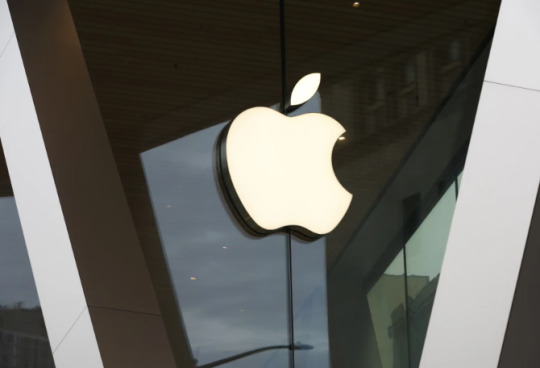#ustariffs
Explore tagged Tumblr posts
Text
youtube
Corporate Japan's nerves fray as US tariff talks drag on
Tensions are rising within Japan’s corporate sector as prolonged trade negotiations with the United States over potential tariffs continue to create economic uncertainty. Major Japanese exporters, particularly in the automotive, electronics, and manufacturing industries, are voicing concerns about the possible implications of increased US tariffs on their businesses. As talks stretch on without a clear resolution, anxiety grows over potential disruptions to global supply chains and Japan’s export-driven economy. Business leaders in Japan have expressed frustration with the lack of progress, warning that prolonged uncertainty could undermine business confidence, investment decisions, and production strategies. The possibility of new tariffs poses a significant risk to Japan’s economic recovery efforts in the post-pandemic period, especially as the country navigates additional challenges from inflation, labor shortages, and fluctuating currency rates. Analysts suggest that extended delays in reaching a trade agreement might not only impact Japan’s export sectors but could also strain diplomatic ties between Tokyo and Washington. Corporate Japan is closely monitoring the situation, with many companies reportedly exploring contingency plans and alternative market strategies in anticipation of potential tariff hikes. In this video, we break down the latest developments in the US-Japan trade talks, reactions from key industry leaders, and the broader economic implications for Japan’s business environment. Stay tuned for in-depth analysis and updates on how these negotiations could shape the future of global trade relations. Don't forget to like, comment, and subscribe for more breaking news and international business insights.
#JapanUSRelations #TradeTalks #JapanEconomy #CorporateJapan #USTariffs #GlobalTrade #JapanNews #InternationalBusiness
#JapanUSRelations#TradeTalks#JapanEconomy#CorporateJapan#USTariffs#GlobalTrade#JapanNews#InternationalBusiness#Youtube
0 notes
Text
BOJ Sticks to Rate Hike Outlook Despite U.S. Tariff Concerns, Sees Wage Growth as Key Driver
The Bank of Japan signaled continued confidence in Japan’s economic recovery and wage momentum, despite lingering concerns over the impact of U.S. tariffs, with Deputy Governor Shinichi Uchida reaffirming the central bank’s readiness to resume interest rate hikes if inflation and growth regain traction.
Speaking in parliament on Tuesday, Uchida acknowledged that uncertainty surrounding U.S. trade policy poses a challenge to Japan’s economic outlook. However, he emphasized that the tight domestic labor market is expected to sustain upward pressure on wages and prices.
"While underlying inflation and inflation expectations may temporarily stall, wage growth is likely to persist thanks to robust employment conditions," Uchida said. He added that Japanese firms are continuing to adjust prices to reflect rising labor and logistics costs.

Despite the external headwinds, Uchida noted that the BOJ would evaluate the broader economic impact of U.S. tariffs without bias and maintain policy flexibility to respond as conditions evolve.
The remarks reflect the central bank’s ongoing balancing act: managing the drag from global trade tensions while remaining attentive to homegrown inflationary trends. Uchida’s comments also align with the BOJ’s recent policy meeting, where interest rates were held steady at 0.5% and growth forecasts were sharply downgraded due to weakening export prospects.
A summary of opinions from the April 30–May 1 meeting released Tuesday revealed a divided board. Some members expressed readiness to restart rate hikes if U.S. policy uncertainty eases, arguing that the broader path to the BOJ’s 2% inflation goal remains intact.
One board member stressed the importance of agility in monetary policy, suggesting that rate hikes could resume if U.S. trade measures stabilize. Another noted that the BOJ’s policy trajectory could shift quickly depending on how global developments unfold.
“There is no change to our tightening stance,” one opinion read, citing persistently negative real interest rates and inflation projections that still point toward achieving the BOJ’s target.
The meeting took place amid heightened global recession fears tied to former U.S. President Trump’s tariff strategy. However, recent market optimism has emerged after the U.S. and China agreed to a 90-day reduction in tariffs, providing temporary relief from trade tensions.
The BOJ also flagged a potential adjustment to its bond tapering strategy. Board members discussed reviewing liquidity conditions across maturities, particularly in response to rising super-long bond yields.
At its June policy meeting, the central bank is expected to reassess the tapering framework for government bond purchases, preparing a new plan that will extend beyond the current schedule, which runs through March 2026.
0 notes
Text
0 notes
Text
IMF: German Spending Surge Won’t Offset Economic Strain from U.S. Tariffs
The International Monetary Fund has warned that a surge in German infrastructure investment will provide a modest boost to euro zone growth, but not enough to counterbalance the mounting pressure from U.S. tariffs.
Alfred Kammer, the IMF’s European department director, said the recently approved German fiscal package — including a €500 billion ($548 billion) infrastructure and climate fund — will lift economic activity in the euro area, but its impact will be overshadowed by trade tensions. “It’s the tariffs and trade tensions that are weighing on the outlook, rather than the positive effects of fiscal policy,” Kammer said in an interview during the IMF-World Bank Spring Meetings.

Last week, the IMF downgraded its euro area growth forecasts by 0.2 percentage points, projecting GDP growth of just 0.8% in 2025 and 1.2% in 2026. The forecast reductions extended to several major economies, including the U.S., U.K., and parts of Asia, amid ongoing global trade uncertainty.
Germany’s break from its traditional fiscal constraints has enabled higher defense spending and major investment initiatives aimed at revitalizing Europe’s largest economy — moves economists have described as a potential "game changer." Still, Kammer cautioned that the broader euro zone outlook remains fragile due to the disruptive effects of American protectionist trade policies.
At the same time, the European Central Bank is being urged to proceed cautiously with further monetary easing. Kammer stated the IMF sees room for just one additional interest rate cut this year — a 25-basis-point reduction — before holding steady. The ECB has already cut rates seven times since June 2024, bringing its key rate to 2.25% as of April.
“We’ve seen substantial progress on disinflation, and monetary policy has been effective,” Kammer said. “We expect inflation to sustainably reach the 2% target in the second half of 2025. That allows for one more cut, likely in summer, before pausing — unless unexpected shocks require further adjustments.”
Despite this guidance, markets are currently pricing in two more rate cuts for 2025, reflecting ongoing uncertainty in the global economic landscape.
0 notes
Text
#MagnumIceCream#Unilever#USTariffs#UnileverSpinOff#FernandoFernandez#NelsonPeltz#Q12025Earnings#UnileverRevenue#CostCutting2025#IceCreamBusiness#UnileverStrategy
0 notes
Text
U.S. Tariffs and Their Impact on Indian Exports – A Complete Analysis

Explore the far-reaching effects of U.S. tariffs on Indian exports in Eximity’s latest blog. Learn how India-U.S. trade relations, bilateral trade agreements, and retaliatory tariffs are shaping export demand across sectors like textiles, electronics, and agriculture. Gain insights into policy shifts, market risks, and strategies to navigate trade policy uncertainty in this evolving global trade landscape.
#ustariffs#indiaustraderelations#bilateraltradeagreements#retaliatorytariffs#tradepolicyuncertainty#exportdemand#textilesandapparel
0 notes
Text
#IDTechEx#UStariffs#EVcharging#powerelectronics#powermanagement#powersemiconductor#SupplyChain#GreenTech
0 notes
Text
PM Shehbaz Sharif Chaired a Meeting on new US Tariffs
0 notes
Text
EU Offers 'Zero-For-Zero Tariffs' To US | Japan To Send A Team To Negotiate | N18G | CNBC TV18
youtube
789 views Apr 8, 2025 #Trump#EU#USTariffs
786 views • Apr 8, 2025 • #Trump #EU #USTariffs
The European Union has offered to negotiate with Donald Trump, offering zero-for-zero tariffs for industrial goods. This comes as the EU trade ministers met for the first time since the announcement of US' tariffs. Meanwhile, Trump also claimed that Japan is sending a 'top team to negotiate' on trade
Transcript
0:01[Music]
0:14these tariffs come first and foremost at
0:17immense costs for US consumers and
0:21businesses but at the same time they
0:23have a massive impact of on the global
0:26economy especially hard hit are the
0:29developing
0:30countries and this is a major turning
0:33point for the United States nonetheless
0:36we stand ready to negotiate with the
0:39United States indeed we have offered
0:42zero for zero tariffs for industrial
0:44goods as we have successfully done with
0:46many other trading
0:48partners because Europe is always ready
0:51for a good deal so we keep it on the
0:55table
0:57[Music]
1:11hey
1:14[Music]
1:17hey hey
1:20[Music]
1:26[Music]
1:41hey hey hey
1:46[Music]
1:55[Music]
2:01what does it take to build India's
2:03largest startup
2:05platform it takes a journey of starting
2:08out as an
2:11unknown and ending up as unforgettable
2:15it takes more than two decades of
2:17celebrating the most influential and
2:19influencing the most celebrated
2:22entrepreneurs from chronicling the
2:24stories of India's startup universe to
2:26becoming a success story in itself as
2:29India's longest running show on startups
2:32and entrepreneurship celebrating 21
2:35action-packed years of building India's
2:37biggest startup
2:39communities young Turks at 21 only on
2:43CNBC18 and
2:51CNBCTV8.com hey thank you for watching
2:54this on CNBC TV8 hope you liked it for
2:57more such interesting news and updates
2:59follow CNBC TV18 on all the social media
3:02platforms
0 notes
Text
White House Calls for 'Reciprocity' Amid India’s 100% Tariffs on US Goods

The White House on Monday called for reciprocal tariffs, listing India among countries it accuses of imposing “unfair” and damaging tariffs on U.S. exports. With reciprocal tariffs set to take effect on April 2, the U.S. is pushing back against nations, including India, that tax American goods heavily.
White House Press Secretary Karoline Leavitt highlighted India’s 100% tariff on American agricultural products, describing it as a barrier that makes it “virtually impossible” for U.S. products to reach key foreign markets. Leavitt stressed that these tariffs have harmed U.S. businesses and that it’s time for "reciprocity" in trade practices.
“These countries have been ripping off our nation for far too long,” Leavitt said, emphasizing the disdain some nations have shown toward American workers. She pointed to high tariffs elsewhere, such as the European Union's 50% tax on American dairy, Japan’s 700% tariff on U.S. rice, and Canada’s nearly 300% levy on American butter and cheese. India’s 100% tariff on American agricultural goods only adds to this pressure.
Leavitt’s remarks come as President Donald Trump prepares to announce a significant shift in U.S. trade policy. Earlier, Trump had referred to current tariffs as “temporary” and “small,” but emphasized that the upcoming reciprocal tariffs would be a "game-changer."
Leavitt did not provide specific details but assured that Trump’s trade team had finalized plans, which will focus on ensuring fairness for U.S. businesses. The new tariffs are expected to be officially announced on Wednesday, signaling a major change in U.S. trade relations.
0 notes
Link
Ontario may restrict U.
0 notes
Text
U.S. Businesses Brace for Potential Trump Tariffs, Opt for Diverse Strategies Amid Uncertainty

Source: intellinews.com
Share Post:
LinkedIn
Twitter
Facebook
Reddit
With President-elect Donald Trump’s proposed tariffs looming, U.S. businesses are strategizing ways to protect their operations from the potential economic ripple effects. Trump’s proposal includes a 10% tariff on all imports and a substantial 60% tariff on goods made in China, a significant trading partner for the U.S. There is also a suggested 25% levy on imports from Mexico. If enacted, these measures could elevate consumer prices and provoke retaliatory tariffs from affected countries, leading to a cascade of economic consequences. Economists warn that Trump’s tariff plan, which may be his most impactful economic policy, could drive inflation, disrupt U.S.-China trade, and revert import duty rates to levels not seen since the 1930s.
Businesses Respond by Front-Loading Inventories
Many U.S. businesses are taking proactive steps to mitigate risks. For example, M.A.D. Furniture Design, based in Hong Kong, is accelerating shipments of its Chinese-manufactured furniture to a warehouse in Minneapolis, anticipating a smoother transition if the tariffs come into effect. Similarly, Joe & Bella, an online clothing retailer based in Chicago, has significantly increased orders for popular Chinese-made items, such as shirts and pants, to ensure supplies last through the upcoming Chinese New Year when factory operations pause for several weeks. “We wanted our merchandise delivered before Chinese New Year to avoid potential delays and tariff impacts,” said co-founder Jimmy Zollo.
Front-loading, or preemptively increasing inventory, has been a common strategy among importers to avoid trump’s tariff costs. However, with the breadth of products that could be affected by Trump’s proposed tariffs, experts speculate that U.S. ports might become congested if many companies employ similar tactics. This strategy requires businesses to invest heavily in storage and logistics, a costly endeavor that some, particularly small businesses, may not be able to afford.
Smaller Businesses Weigh Options Amidst Uncertainty
While larger companies with sufficient resources might lean toward front-loading, some small business owners are adopting a cautious approach, prioritizing cash flow over large, preemptive stockpiling. Hilla Hascalovici, CEO of New York-based Periodally, a company that sells Chinese-made heating patches for menstrual relief, has decided against early orders, citing the high costs of storage and expedited shipping as deterrents. Similarly, Max Lemper-Tabatsky of Denver-based Oaktree Memorials, which imports cremation urns from Asia and Europe, has chosen a “wait-and-see” approach rather than committing significant capital based on potential trump’s tariffs that may not materialize.
Freight companies, too, are preparing for the potential changes. Alan Baer, president of OL USA, a freight handling company, anticipates a slowdown in shipments if the tariffs are enacted, potentially leading to reduced demand for his firm’s services. “Tariffs in shipping are challenging no matter the scenario,” Baer remarked, highlighting the potential for workforce reductions if tariffs lead to decreased import volumes.
In light of Trump’s tariff policies during his presidency from 2017 to 2021, many in the business community remain skeptical but cautious, acknowledging that campaign promises do not always result in implemented policies. However, with the possibility of substantial tariffs, U.S. businesses are adopting a mix of preemptive and conservative strategies to navigate the uncertainty ahead.
#TrumpTariffs#TariffImpact#USTariffs#USBusiness#TradeWar#SupplyChain#InflationConcerns#BusinessStrategy#TariffStrategies#FrontLoading#SmallBusiness#GlobalTrade#ChinaTrade#MexicoTariffs#RetailImports#ShippingLogistics#EconomicImpact#BusinessUncertainty#TradePolicy#ImportTariffs
0 notes
Text
The Rise of Chinese EVs: A Dividing Force in the West
🌍 Chinese electric vehicles (EVs) are shaking up the global market, but the U.S. and Europe are responding differently. While U.S. tariffs on Chinese EVs have soared to 102.5%, effectively blocking their entry, Europe is taking a more cautious approach. This divergence highlights contrasting strategies: the U.S. aims to protect its auto industry, whereas Europe is wary of stifling competition. As Chinese carmakers ramp up production, the impact of these policies will shape the future of the global EV market. Daily International News Updates
#ElectricVehicles#ChinaEVs#USTariffs#EuropeTariffs#AutoIndustry#GlobalTrade#Innovation#Sustainability#EconomicPolicy
0 notes
Video
youtube
Gold Prices Surge to Record Highs | 7% Returns in 7 Days | Jan Media TV
#youtube#GoldPrices InvestmentOpportunity GoldSurge AkshayaTritiya WeddingSeason USTariffs JanMediaTV MarketTrends BreakingNews
0 notes
Text



EDB Organizes Stakeholder Consultation to Address Impact of US Tariff Hikes on Sri Lankan Exports Read More 👉 https://bit.ly/4j79JRu
0 notes
Text
Apple Announces $500 Billion Investment in the U.S. Amid Tariff Threats
Apple has made a bold move, announcing a $500 billion investment in the United States over the next four years. This commitment will see the company hiring 20,000 people and building a new server factory in Texas, slated to open in 2026.

This announcement comes just days after President Donald Trump revealed that Apple CEO Tim Cook had pledged to shift some of the company’s manufacturing operations from Mexico to the U.S. to avoid tariffs. With Trump continuing to threaten tariffs that could increase the cost of iPhones made in China, this investment solidifies Apple’s strategic pivot towards strengthening its presence in the U.S. market.
Key Highlights of the Announcement:
$500 Billion Investment: Apple is committing to this massive investment to continue driving innovation and growth in the U.S.
Job Creation: The company plans to hire 20,000 employees across various sectors, contributing to economic growth.
New Server Factory: The Houston-based factory will produce servers for Apple Intelligence, enhancing the company’s suite of AI-powered features. The factory is expected to create thousands of jobs in the region.
In his announcement, Tim Cook expressed his confidence in the future of American innovation and emphasized Apple’s pride in its long-standing U.S. investments.
This investment marks a significant moment for Apple, as it navigates the global economic landscape and seeks to bolster its presence in its home country while avoiding tariffs on products like the iPhone.
0 notes